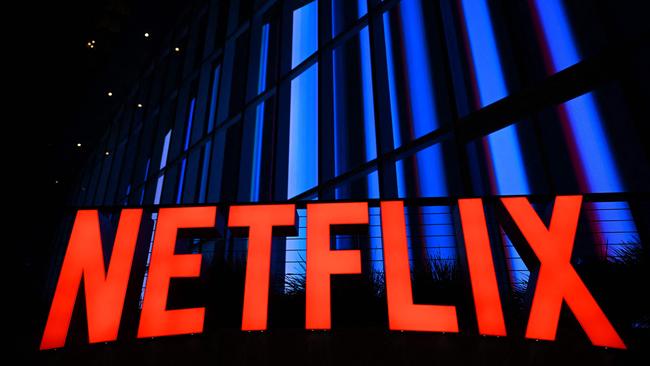Netflix focus on quantity over quality is a turn-off for subscribers
The streaming giant is spending almost $US17 billion a year on new content, only to find that much of what it produces holds little appeal.

The feeling will be familiar to many Netflix subscribers. There are reams of films and TV series to watch but few that appeal, and even when you start one, it might not feel worth persevering with.
New data now backs up what many have long suspected: the quality of the streaming giant’s original productions is declining – at least, according to viewers.
Despite having an annual content budget of about $US17bn, the popularity of Netflix’s output has been falling in recent years.
Sunday Times analysis of reviews on the IMDb (Internet Movie Database) website, which aggregates the marks out of 10 given to shows by millions of users, shows that quality has suffered as Netflix works on growing the quantity of its output.
The average rating for its productions hit a high point of 7.7 in 2013 but fell to 6.5 last year.
Netflix’s rivals have had better success with critics of late.
Productions from Apple, the home of the comedy drama Ted Lasso and the Gary Oldman spy series Slow Horses, had an average rating of 7.2 last year, while Disney banked 6.8.
It is a change from Netflix’s first moves into original production 10 years ago, which could hardly have been a bigger success.
Its first show, House of Cards, achieved critical and popular success, picking up a slew of Emmy nominations and receiving an average rating of 9 from more than 10,000 users on IMDb.
Other hits followed, including Orange is the New Black, Stranger Things and Squid Game.
Last year, however, Netflix original TV releases included Too Hot to Handle (rated just 4.7), a Love Island-style series in which couples can only win if they do not have sex with each other; Snowflake Mountain (5.5), in which feckless Gen-Zers were packed off to a remote part of the Lake District and left to fend for themselves; and The Witcher: Blood Origin, starring Michelle Yeoh (4.5). Netflix’s original films did not fare much better, with Falling for Christmas, Lindsay Lohan’s return to a lead role after almost 10 years, earning an average rating of 5.2 and a Texas Chainsaw Massacre sequel garnering just 4.7.

It is not all bad for the streaming site. All Quiet on the Western Front, Netflix’s German-language adaptation of Erich Maria Remarque’s First World War novel, is one of the frontrunners at the Oscars, having bagged nine nominations last week.
Glass Onion, Rian Johnson’s sequel to Knives Out, starring Daniel Craig, is up for best adapted screenplay, while Ana de Armas has been nominated for best actress for her turn as Marilyn Monroe in Blonde.
Netflix has spent recent years becoming one of the biggest media producers in the world, adding 640 original shows and films to its platform last year. In 2013, there were just eight.
The decision to focus on quantity is partly a reaction to an increasingly crowded field, as other entertainment giants such as Disney, Amazon Prime Video and Paramount launched their own streaming services, pulling their films and series from Netflix.
It is not the only streaming giant producing duds.
Amazon, the ultimate owner of IMDb, made The Lord of the Rings: The Rings of Power, the most expensive TV show yet made, but the series got an average rating of 6.9 from more than 310,000 viewers.
“(Netflix) have spent so much money on trying to beef up their content library, and as a result of that the quality control has got away from them,” said Cory Barker, assistant professor of communication at Bradley University in Illinois.
The boss of a rival broadcaster said the Netflix tactic has been to “throw things at the wall”.
A leading TV producer who has worked with Netflix put it more bluntly: “Netflix started as a DVD rental service and it feels like they are still only interested in the cover.”
Netflix revealed last week that its decade-long growth spurt was slowing and that last year it lost more than one third of its market value. It added eight million subscribers in 2022, its worst growth in 10 years, and ended the year with 231 million paying subscribers. Reed Hastings, 62, who founded Netflix 25 years ago, stepped down as co-chief executive this month and become executive chairman.
The company itself has acknowledged the growing pains. “It’s been a huge challenge to build a lifetime of entertainment in just 10 years,” it wrote to investors last year.
“And while we’ve had our share of misses, we’ve managed to create a very broad slate with many great series and films.”
The Sunday Times


